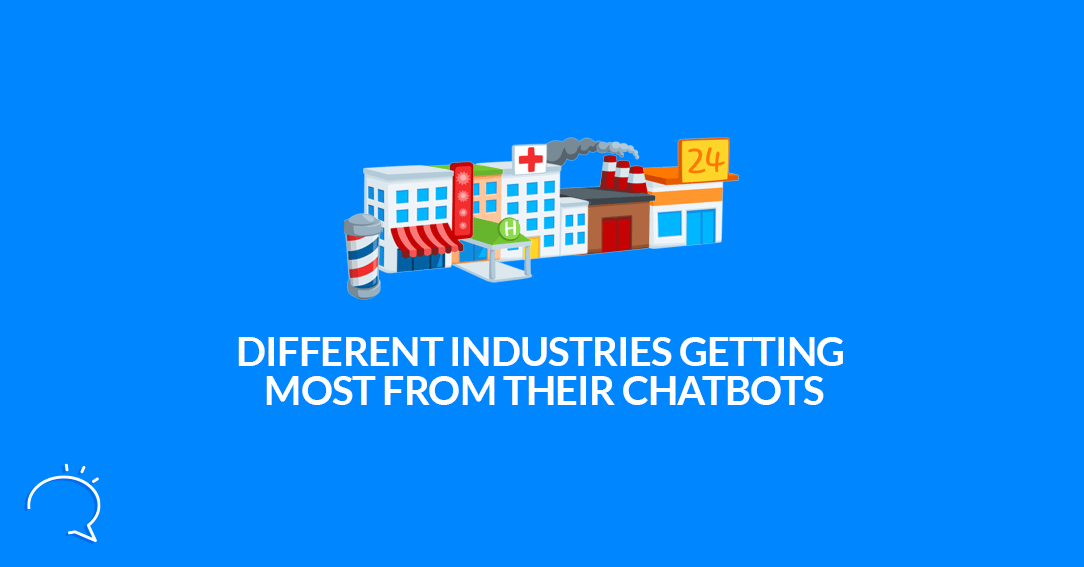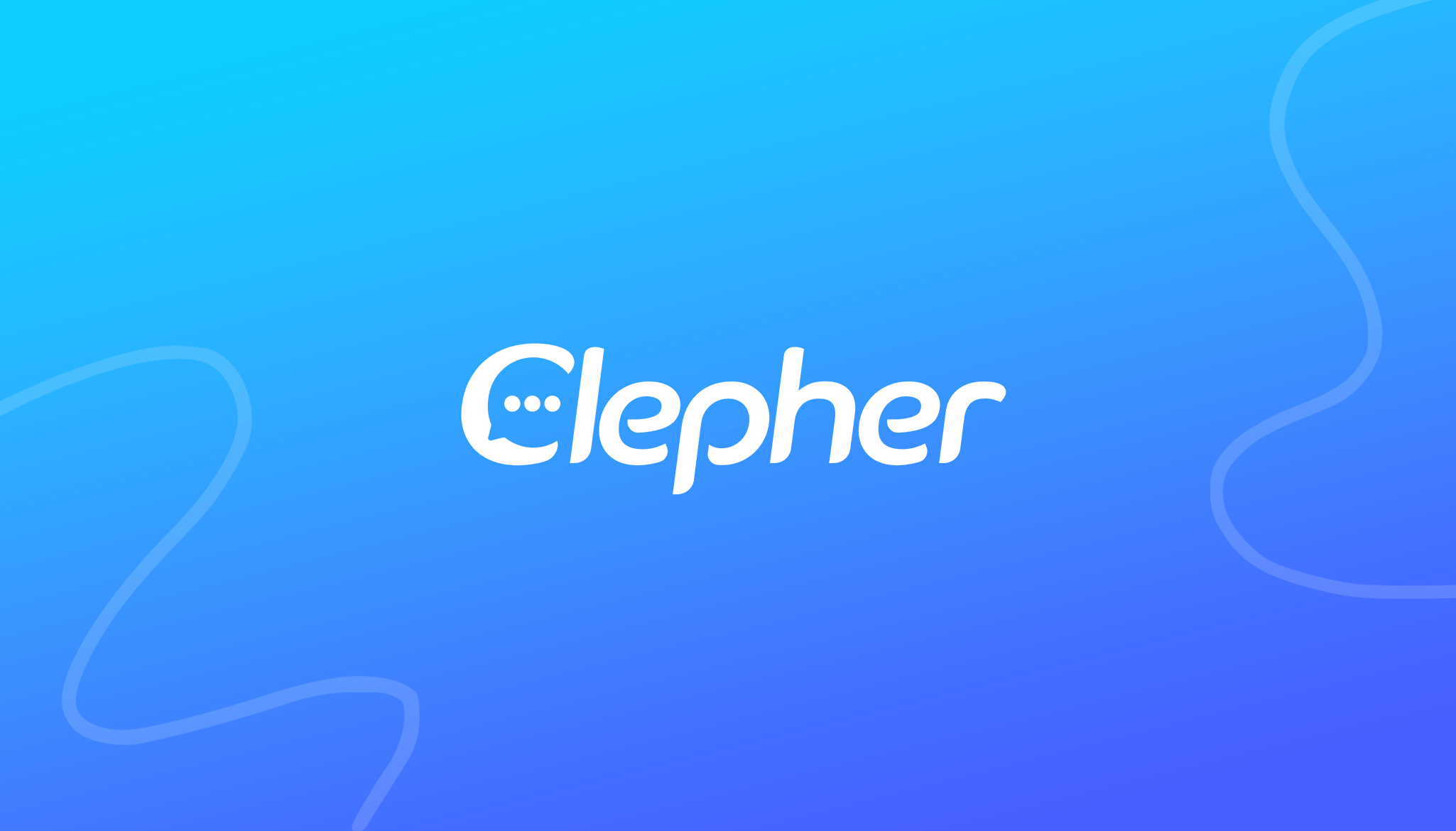Different industries that think they can get by on poor customer support are sadly mistaken. A global report found 54% of all customers have higher service expectations than they did a year ago. A dedicated department devoted entirely to customer service is ideal for any business. But, not every business can afford these types of departments.
Luckily, because of chatbot tech, excellent customer service is more automated and affordable. But, what are the different industries that chatbot customer support can thrive in? In this article, we’ll cover this question and more. Let’s get started!
What Is A Chatbot & How Does It Work?
A chatbot is a software that can simulate the experience of conversation. Usually, these bots do it through text or auditory means. But, bots can vary in their complexity. Some highly advanced processing systems can detect and respond to language. More simple systems usually scan for a keyword and pull an automated reply.
That said, though. Chatbots are still early on in their development. They haven’t passed the Turing Test, so they aren’t aware of their intelligence. Yet, that doesn’t mean the bots today can’t optimize both a business and a customer’s experience! Note they aren’t a complete substitute for in-person customer service representatives.
One study interviewed customers and found that 86% of them believe there should be an option to request for human help from the bot. As such, it’s essential to use them in unison with customer service representatives.
Now, you may be wondering how a chatbot can help your business. The answer? By making your life easier and the customer’s life easier. Let’s first see how a chatbot can improve the customer experience.
How Can a Chatbot Change a Customer’s Experience?
Humans respond well to a conversation – even if it’s simulated. I mean, look at the popularity of devices like Amazon Alexa or Google Assistant. As we mentioned, the need for excellent customer service is rapidly rising.
When the needs and shopping methods of consumers change, companies must adapt. And so, AI voice and text simulation are here to stay.
So why do customers love chatbots?
There are lots of different reasons. People are often shy or dread talking to in-person representatives. Customers also enjoy the sense of instant gratification in receiving an immediate response.
This streamlined experience is much more preferable to being kept on hold via telephone. Keep in mind that a well-implemented chatbot has a proven positive effect on the consumer’s experience. Especially if they’re young!
A recent study found that 70% of millennials reported that a chatbot improved their experience. Also, chatbots don’t just make the customer’s experience better, they make things easier for the business too.
Once MIT Technology review found that 90% of businesses that used a chatbot said the tech-led to faster complaint resolution. If you want to explore some of the other ways a chatbot can improve your customer’s perception of your business, then check out our full article here.
What Are Some Different Industries That a Chatbot Works Well In?
Now that we know a little about how chatbots can help businesses at large with their customers. Let’s see how these bots can assist specific industries, alright? In this section, we explore how new technology can save money and manpower into ten different types of businesses.
1. Retail and eCommerce
Bots fit right into the retail structure. This because they can handle most of the questions asked by people who need support. This alone allows you to reduce the number of people you need to use in your customer service department.
Chatbots can also be used to optimize the customer experience while they’re shopping. Many programs can analyze a customer’s previous shopping experience. And then adjust it to fit their personal preference. This highly interactive form of shopping keeps the customer engaged and reduces the rates of dropped sales.
2. Hospitality and Travel
The hospitality industry relies on quick service that caters directly to the client’s needs. As such, a chatbot that can assist with 24/7, around-the-clock service fits right into the mix.
Almost all hospitality chatbots need a mobile interface—it’s likely what someone’s using when they travel. Hotel guests can use the chatbots to check into their rooms, or if they’re at home, they can book a room.
Some of the advanced models of hospitality chatbots can even perform concierge services. These kinds of virtual concierges provide automation for more general tasks.
Things like restaurant reservations and conference organization can be handled by a bot. This then frees up the in-person staff to more specific requests that the AI system can’t handle.
3. Banking
You can expect chatbots to take over the banking industry very soon. Chatbots work best when they’re assigned menial tasks—things that are navigational or transactional.
Most of the tasks that many bankers handle are transactional by their nature. As such, they fit right into the user interface of most chatbots. Just look at Bank of America for proof.
The company launched a chatbot named Erica. Erica performs basic tasks like finding ATMs, money transfers, and statement access.
People are getting more comfortable with using their phones for financial matters—just look at the success of Apple Pay and Venmo. As such, we can expect a permanent place for chatbots in the future banking industry.
4. Publishing
Journalist publications, like NBC, the NY Post, and The WSJ, were among the first to realize the potential of bots.
The traditional print media was losing its readers to online publications. As a result, they adapted to the times. Today, bots can remind readers of the latest news update. They even tell people of a new novel title or a special sale they should take advantage of.
Chatbots also make it easier for users to navigate online publications. For example, a chatbot might supply a keyword search with relevant results.
5. Live Event Planning
Ever purchased a ticket to a concert, festival, or sporting event? If so, then you know what it’s like to have a question about the event. Perhaps you want to know about parking or event times? Or see if there are lockers available?
Regardless of the question, it can be a pain getting in touch with a representative. A bot on websites of these events can answer basic questions users have.
A well-programmed bot can walk anyone through the entire event process from start to finish. It can assist in the buying process by acquiring contact information.
Then, during the day of the event, the AI can remind the customer about parking and scheduling information. If any updates or cancellations need to be made, then the chatbot can handle it.
6. Wedding Industry
Weddings may seem to fall under the live event planning umbrella. But the sheer size of the industry puts it in a category of its own. The number of decisions that goes into every last detail of a wedding event makes it extremely ideal for a chatbot.
The service can help with the initial planning stages, but it shines in terms of guest coordination. A chatbot can find out which guests are vegetarian or need other dietary options.
They can also send weather updates, clothing suggestions, and any changes that occur with the schedule. That way, you don’t have a couple of people frantically calling hundreds of guests for last-minute reminders.
7. Health
Health is something that every individual need to worry about—one day or another. Why not simplify the process as much as possible? There are many ways that the health industry can enjoy chatbots.
It can help potential patients by allowing them to perform initial diagnoses. For example, chatbots like HealthTap, will enable you to input your symptoms. It then provides you with some preliminary medical advice.
If a patient needs reminders to take pills or help to find a doctor, then services Florence can also help.
A chatbot scheduling device for a doctor’s office can also help patients schedule a visit. All without disclosing any potentially embarrassing details over the phone. When it comes time for a patient’s appointment… the scheduling chatbot can send reminders, so the person arrives on time.
8. Gaming
Chatbots are also changing the gaming industry! Primarily through large networks like Facebook Messenger. Two games, in particular, are snowballing in popularity.
One of them, MojiHunt, is a sticker-based emoji game that exchanges tasks for rewards. Bots also work exceptionally well for text-based games like Trivia Blast.
These types of games use simple Q&A interfaces, so they need minimal programming. People enjoy these simple, time-wasting games for when they are traveling to work… or killing time between classes.
As such, there is a lot of money to be made with chatbot games that emphasize social networks and play. Traditionally, games required lots of developers and funding. But these types of games are straightforward and affordable to make. Plus, they can bring in a lot of money through advertising or in-game transactions.
9. Small or Medium Businesses
Small and medium businesses need both a low form of customer service… and some marketing efforts. For many struggling SMEs, these demands can be too much to handle.
A chatbot is a perfect solution for smaller businesses, it hits two birds with one stone! Because you can both provide an automotive customer service experience for your customers online. Plus, you’re able to market to new clientele automatically. But, the real benefit of Facebook Messenger chatbots is the affordability. It can cost thousands of dollars to develop an app to run a chatbot. Using Facebook Messenger requires a fraction of the cost.
It also helps you stay connected to potential leads and increase engagement. If you want to learn more about how chatbots are helping small or medium businesses, then see this link here.
10. Recruiters
SMEs aren’t the only ones who can enjoy a Facebook Messenger chatbot. Any recruiters, regardless of the industry, can find their dream employees through the service.
All you need to do is program a chatbot with the qualities you want. They’re searching out candidates that fit your specifications. And they perform a preliminary interview.
This technology both saves recruiters time and energy, but it also allows them more control over the candidates that can apply. If you only want people in a particular geographical region, you can limit the search by location.
Also, if it’s an entry-level position, you can limit the results based on age. Make sure you check out our guide for everything you need to know about recruiting employees of Facebook Messenger.
Ready for the Future of Chatbots? Check out Clepher
We hope this article helped show you how a chatbot can fit into many different industries. While knowledge of coding helps when making a chatbot, it isn’t necessary.
Many services offer fully-formed chatbots or can make one to your specifications. Unfortunately, these types of chatbots can get expensive quickly.
So how do you find the service that best fits your needs?
If you want to reach a Facebook Messenger audience, then look no further than Clepher. Don’t know how to code? No problem! All you need to install our chatbot messenger is drag and drop the program.
From there, you can send messages to your subscribers, get notifications for a live chat, and track your audience.
There is no better way than to grow your brand through a Facebook Messenger chatbot. You can also sign up with Clepher today, go ahead and try out a conversation with our chatbot. I think you’ll be impressed – follow the link here.
Related Posts



